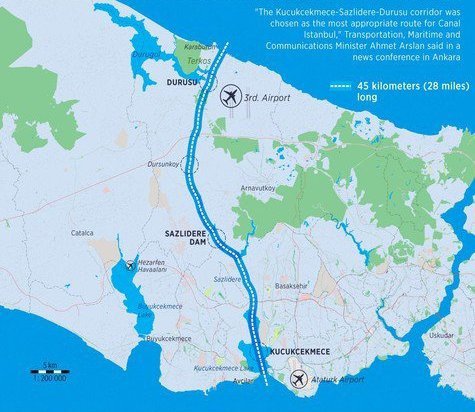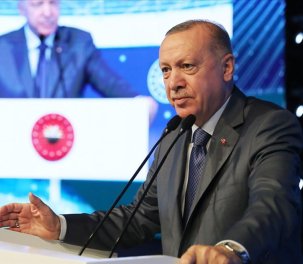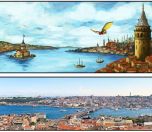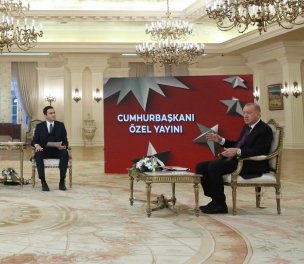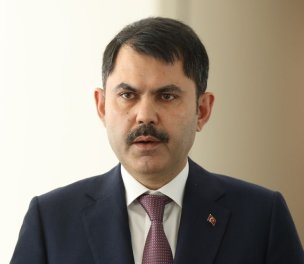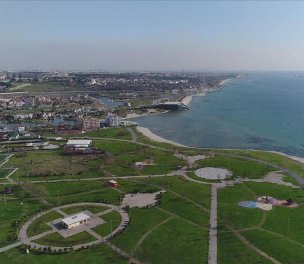Photo: Wikimedia Commons
Click to read the article in Turkish
Germany's Deutsche Bank came under attention in Turkey following an exchange between President Recep Tayyip Erdoğan and main opposition leader Kemal Kılıçdaroğlu over the financing of the Canal İstanbul project.
As the government moves to implement the project, opposition leaders, including Kılıçdaroğlu, have been warning possible financiers that they would not make any payments once they assume power after the 2023 elections.
During the groundbreaking ceremony for a bridge to cross the canal on June 26, Erdoğan said the financing of the canal would continue regardless of who is in power.
"They'll get this money from you by force," said Erdoğan, noting that the project was subject to the London Court of International Arbitration rules.
At his Justice and Development Party's (AKP) parliamentary group meeting on Wednesday, Erdoğan said opposition leaders were threatening Deutsche Bank.
"They threw threats at Deutsche Bank: 'We certainly won't make the payment.' They know nothing about what a state is ... There is the international arbitration mechanism, they know nothing about that as well," he remarked. "We came to power, didn't we pay the debts before us? Why? Because this is what a state is."
CHP's Kılıçdaroğlu responded to Erdoğan on Twitter, saying, "I tell the same thing to everyone who has an eye on my people's money and nature, they won't be able to get money from Turkey's treasury! Then let me say the same thing to @DeutscheBank as well..."
Meanwhile, no requests have been made to Deutsche Bank regarding the project, according to a Euronews Turkish report citing an anonymous official from the bank.
The bank has provided financial sources for several large-scale infrastructure projects in Turkey, including the İstanbul Metro and the Çanakkale 1915 bridge.
Canal İstanbul project
President and ruling Justice and Development Party (AKP) Chair Recep Tayyip Erdoğan mentioned the project for the first time as "my crazy project" in 2011, when he was still the prime minister. The basic information as to the project was shared with the public at a press conference in Haliç Congress Center in 2011. The plan foresaw an artificial sea-level waterway that would connect the Black Sea to the Sea of Marmara. The most important aspect of the project was the integration of transportation. The construction of 3rd Bosphorus bridge foreseen by the project has been completed. In May 2016, 32 articles of 20 laws were amended. An additional article added to the Pasture Law has paved the way for the region's zoning for construction. With another amendment introduced to the law, it has been understood that the access roads to the Canal İstanbul will be toll roads. Ahmet Arslan, the then Minister of Transportation, Maritime Affairs and Communications, announced the route of the project in 2018. He said that the canal would form an artificial waterway from the Black Sea to Marmara Sea, covering 45 kilometers from Küçükçekmece Lake through Küçükçekmece-Sazlıdere-Durusu corridor. The process of Environmental Impact AssessmentThe Board of Inspection and Survey of the Ministry of Environment and Urbanization approved the Environmental Impact Assessment (EIA) Report of the Canal İstanbul project on December 23, 2019. Accordingly, the report was presented to the public at the Ministry of Environment and Urbanization and İstanbul Provincial Directorate of Environment and Urbanization for 10 days. The citizens submitted petitions of objection against the project within this period. On January 17, 2020, Minister of Environment and Urbanization Murat Kurum announced that they approved the EIA report of Canal İstanbul. |
(PT/VK)




.jpg)
